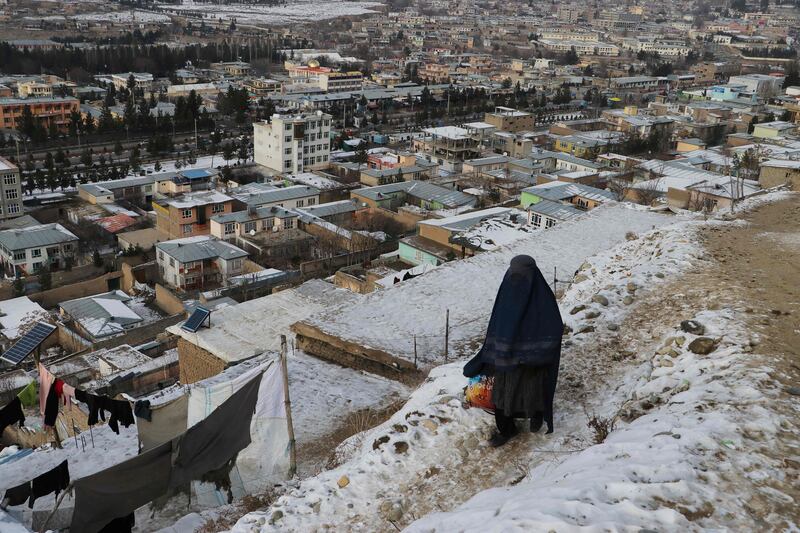The Taliban ban on women working for aid organisations in Afghanistan is hindering humanitarian operations as the population is in desperate need, a top UN official said on Monday.
Martin Griffiths, undersecretary general for humanitarian affairs and emergency relief co-ordinator, said 28 million Afghans need help, with six million facing famine as a winter that has already killed more than 150 people continues.
"Afghanistan is going through a savage winter," the humanitarian chief told reporters in New York.
"Last winter, we managed to survive. I don't know if we can do this indefinitely, not with these bans."
The Taliban issued an edict on December 24 barring international and domestic humanitarian organisations in Afghanistan from employing women.
But they have since created an exemption to allow women to work in the health sector.
During a trip with other officials to Kabul last week, Mr Griffiths said he pleaded with the Taliban for more exemptions.
“We expressed our opposition to the ban, hoped for it to be rescinded," he said.
"We asked for further sectors to be granted these exemptions or authorisations for the role and the function of women."
Mr Griffiths said that during discussions with Taliban ministers, he stressed that women are key to every aspect of the humanitarian response in Afghanistan, as they have access to populations who their male colleagues cannot reach.
“Men-only programming is not merely a subjugation of women, but it's also inadequate programming. It doesn't work as simple as that," the British diplomat said.
But he said that the Taliban are drawing up new guidelines that could allow Afghan women to work in some humanitarian operations.
“Let's see if these guidelines do come through. Let's see if they are beneficial,” he said.
Mr Griffiths's visit followed a trip by the UN's Deputy Secretary General Amina Mohammed to Afghanistan.
Ms Mohammed urged the Taliban to reconsider their ban and not isolate Afghanistan in the middle of a “terrible humanitarian crisis”.
Since their return to power in 2021, the Taliban have struggled to form a functioning government that can provide basic health services, food and economic opportunities for Afghans.
Over the weekend, Taliban authorities sent a letter to universities warning them not to allow women and girls to take entry exams next month.
They have also imposed an extreme interpretation of Islamic law that bars women and girls from going to high school and university, from using parks, gyms, public bath houses, and from most areas of work.







